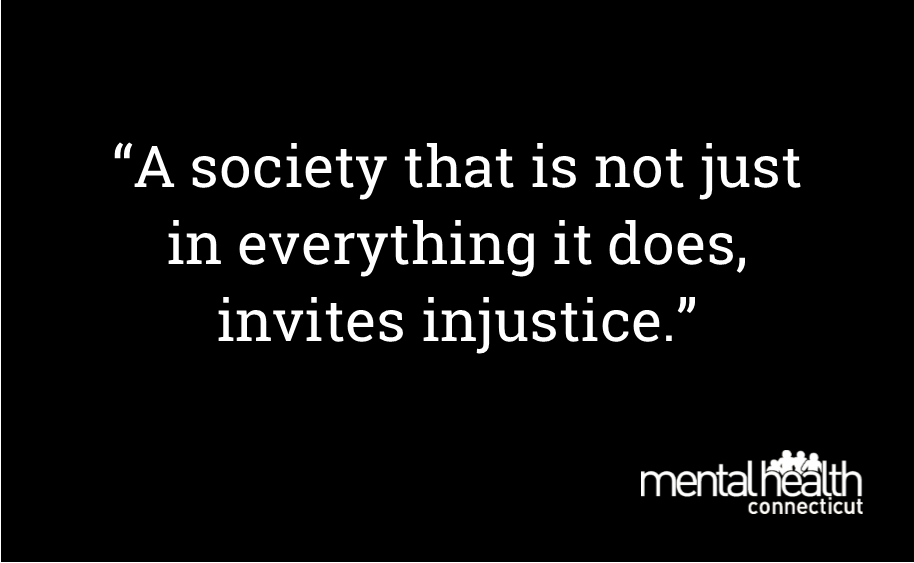 Our country’s history has caught up with us and it happened during a troubling and trying time. We are grieving senseless deaths that are the result of oppression and a system of racism during a time when a pandemic is wearing us thin, emotions are high, and exhaustion is taking hold of our mental and physical health.
Our country’s history has caught up with us and it happened during a troubling and trying time. We are grieving senseless deaths that are the result of oppression and a system of racism during a time when a pandemic is wearing us thin, emotions are high, and exhaustion is taking hold of our mental and physical health.
Only a couple of weeks have passed since the death of George Floyd. This country can no longer ignore the brutality and injustice facing the black community in America. The centuries of systemic racism will take measured, bold action to dismantle. At Mental Health Connecticut (MHC), we have been fighting injustice for 112 years. We are ready to do our part for an evolution that must, once and for all, move beyond incremental change and become transformational.
Racism is a human rights conversation. Race is also a social construct that pervades every part of our lives, from the justice system to education and health care and to housing and employment and the economy. This is not politics. This is about respecting and valuing the human condition and our ability to be human with each other.
At MHC, prioritizing the health and safety of individuals is at the core of what we do. Each of us – no matter our race, ethnicity, disability, gender, sexual identity, or religion – deserve respect, the opportunity to thrive, and allies willing to join us in the fight against oppression. While someone’s “status” may be seen as minority or marginalized, we are first a human being with unique experiences, perspectives, and traits who should be celebrated and supported. At this time in history, we must recognize the need to listen to the black community and support the Black Lives Matter movement.
MHC was founded in 1908 by Clifford Beers, a young professional from Connecticut whose life experiences and trauma in state psychiatric institutions started global change in mental health. His fearless commitment to combat discrimination and fight stigma led him to later establish Mental Health America and was the inspiration for the Clifford Beers Clinic in New Haven, the first outpatient mental health clinic in the United States. This is our legacy and it furthers our resolve. Like Clifford Beers, youth protesters and organizers across this nation and the world remind us that it’s the younger generations who need our attention and support if change is going to take root.
Today, advocacy at MHC has two parts. First, we inform and educate leaders and policy makers to understand when and how human rights are violated and how they can improve the system to support change. Second, we understand that human beings are not helpless and do not need “saving.” We do not lead the fight, but are an ally to the black community and other marginalized groups to aid in their right to be seen and heard. This belief allows us to keep ourselves squarely where we are needed the most, as a partner for individuals who become self-advocates in their journey to health and wellbeing.
Our commitment to deepen our fight against oppression will start with advocacy where, at this point in time, we believe we can have the greatest impact. We have the ability to address the injustices that are ingrained in our culture and go beyond the mental health conversation. This strategy will include broadening self-advocacy and supporting our communities across Connecticut in their efforts to turn ideas into action.
A society that is not just in everything it does, invites injustice. Please join us in the fight for equity, equality, and permanent change to a system in dire need of transformation. Together, we can achieve true progress in Connecticut and across our nation for every human being.
Follow us on social media @MentalHealthCT where we will continue to share updates, information, and resources.
Follow us on Twitter
Follow us on Instagram
Connect with us on LinkedIn
Subscribe to our YouTube Channel

